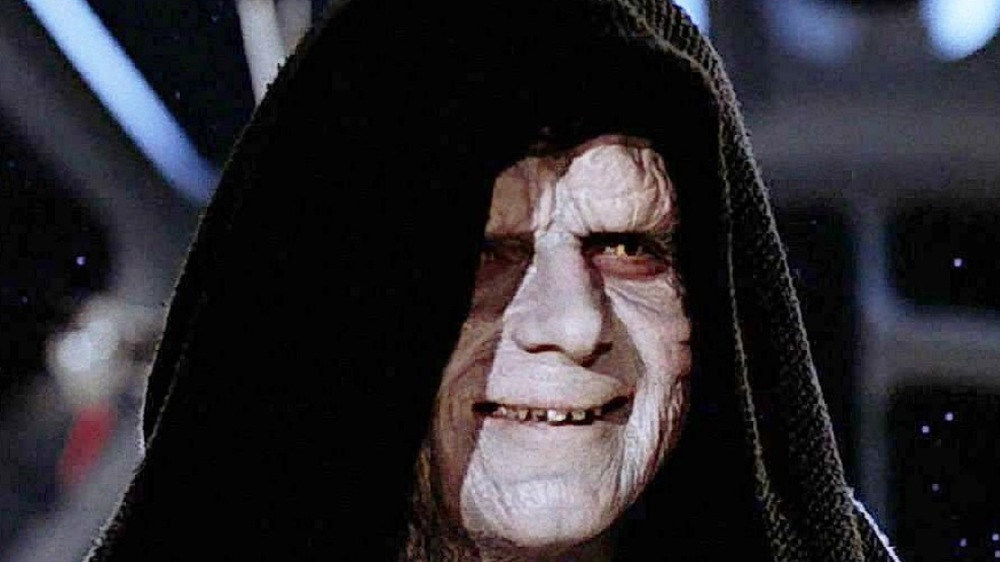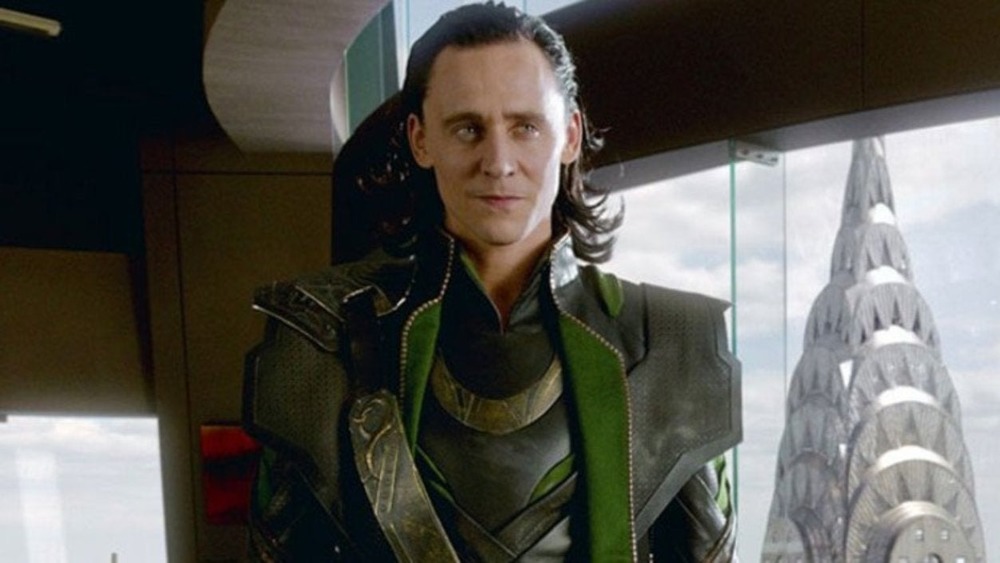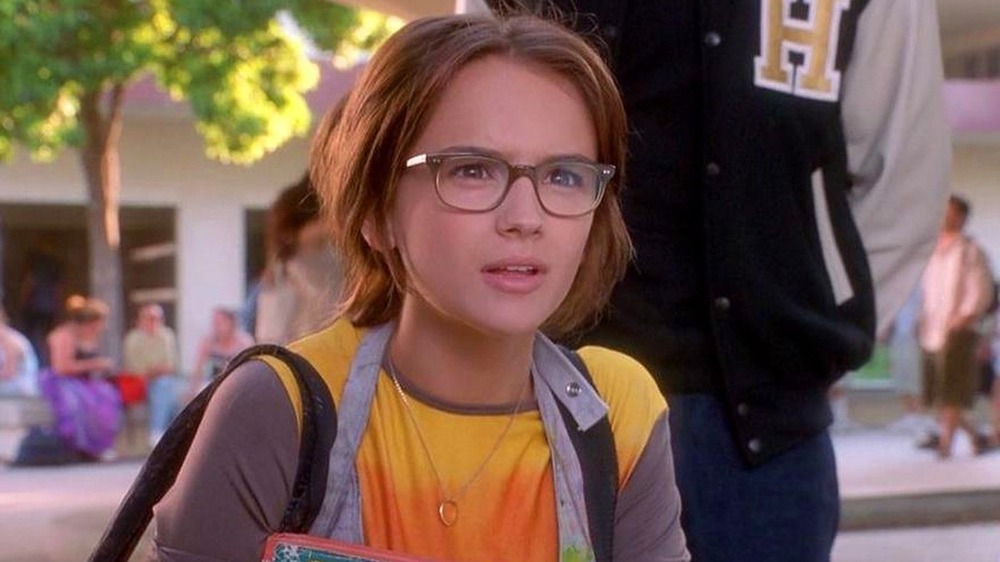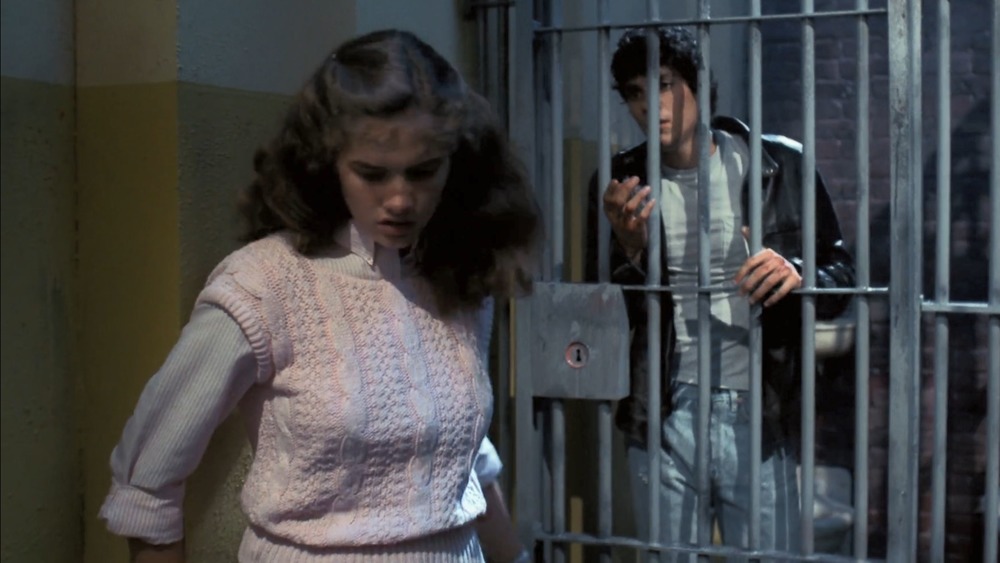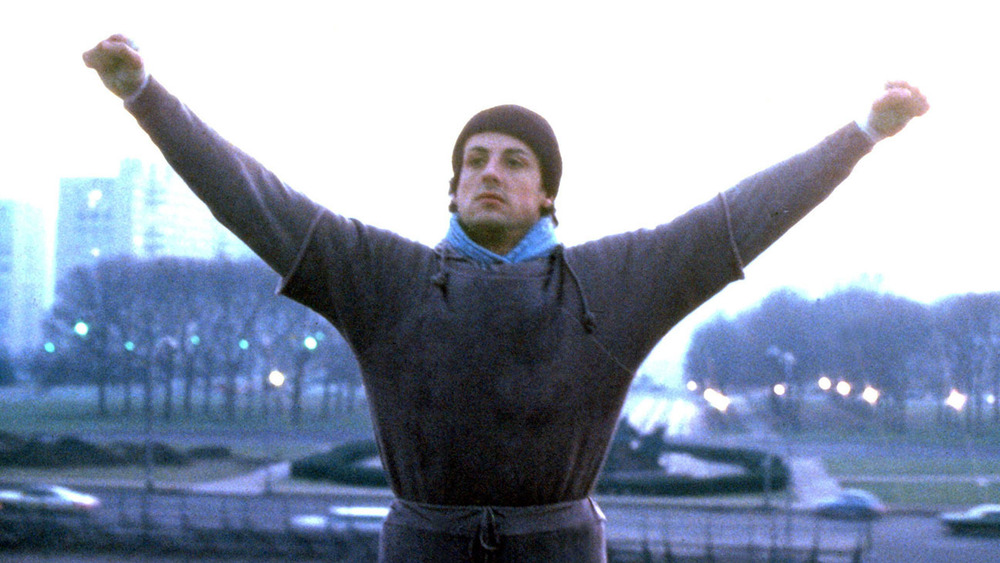Survey Reveals The Movie Trope People Find Most Annoying
After cranking out the movies that keep us laughing, crying, screaming, and sometimes throwing things at the screen for over a century now, Hollywood has developed a number of devices that it reliably falls back on from time to time. Put a little less charitably, there are about a million different tropes that are used in movies that have become so predictable, audiences can see them coming a mile away. Even when it is "subverted" (when you think you see it coming, but the filmmaker neatly sidesteps it) or "lampshaded" (when a character actually calls attention, usually humorously, to the trope being used), falling back on a well-worn trope can register with the audience as plain laziness, even if it makes sense narratively. (Thanks for the terminology, TV Tropes!)
If you tend to watch movies with a less-than-critical eye, it can be easy to miss just how many times certain situations, phrases, or story elements are employed literally over and over again, across all different genres, in tiny indie pictures and gigantic blockbusters and everything in between. Some tropes, though, are so overused that in dragging them out of mothballs one more time, filmmakers all but dare the audience to respond with ridicule. We got curious as to which of these incredibly tired story devices were the most annoying in the eyes of the average moviegoer, and since our readers are a pretty pop culture-savvy bunch, we decided to put the question to them in a survey: Which movie trope is the one that annoys you the most? A surprising number of tropes got roughly equal shares of the vote, but one emerged as the clear winner (or loser, if you will).
The least-favorite trope: The evil monologue
Ah, the evil monologue. From James Bond to Star Wars to the Marvel Cinematic Universe, Hollywood has given us no shortage of incredibly formidable villains who have the hero right where they want them, perhaps even ready to strike the death blow — yet, they find themselves unable to resist gloating over the success of their evil plan, giving said hero just the amount of time they need to gather themselves to continue the fight (or for some deus ex machina to drop out of the sky to save the day).
Fully 21.23 percent of our survey's respondents, over 1 in 5, have had it with the "villains making speeches instead of just sealing the deal" trope. Examples of this are far too numerous to list, but we sure can think of a few: How about Emperor Palpatine, at the conclusion of Return of the Jedi, taking several breaks from Force-lightning-ing Luke Skywalker to death to taunt him, giving Darth Vader plenty of time to have a crisis of conscience and come to Luke's rescue? Or the slimy villain Top Dollar from The Crow, who has undead spirit of vengeance Eric Draven at his mercy, but can't shut up about how he was the one who ordered the attack that resulted in the death of Draven and his girlfriend?
This trope is so well-known that a lot of filmmakers can't help but play with it: think about The Incredibles, in which villains "monologuing" is brought up several times (including by Syndrome, the villain, himself) and The Avengers, in which Loki's speech about his superiority over all of the heroes is cut rudely short by the Hulk. At this point, though, audiences could be forgiven for expecting the lampshade treatment — because once a villain starts to give a victory speech, you know it's over for them.
Audiences are over ineffective explosions and attractive nerds
Now, hear this: In real life, if you're in close proximity to a massive explosion, you're going to die. If you're in even somewhat close proximity to a massive explosion, you won't be hearing anything for a long time, if ever again, because explosions are loud. Film fans generally know this, which is why 20.62 percent of our respondents are sick and tired of seeing characters get blown across the room by a massive fireball, only to get up with a little ash on their faces and dust themselves off — with no apparent broken bones, internal injuries, or hearing loss. This ... just happens all the time in movies, from Sin City (in which the assassin Miho just kind of pops up in the air after a freaking grenade explodes right underneath her) to Iron Man 3 (in which Tony Stark's whole house gets blown to pieces with him and Pepper inside, yet they somehow don't die).
Close behind, with 18.92 percent of the vote: The ostensibly "nerdy girl" who can give herself an instant makeover and become Hollywood-star gorgeous simply by taking off her glasses and letting down her hair. A whole movie was made out of this trope: 1998's She's All That, in which a hunky popular guy bets that he can make an unattractive, geeky chick — portrayed by the obviously drop-dead beautiful Rachel Leigh Cook — into the reigning Prom Queen. Even if you set aside the obviously terrible message embedded in this trope about so-called "conventional" standards of beauty (which you shouldn't), this is just lazy writing and plotting — especially considering that the trope has been in use since before movies even existed as mainstream entertainment, as in the George Bernard Shaw play Pygmalion, which was first staged for the public in 1913.
A pair of stupid exclamations are next on the list of little-loved tropes
Next up are a couple of phrases that, along with their myriad variations, really never need to be said in a motion picture ever again. With 15.23 percent of the vote, we have "In English, please," which is the snarky quip that every single lunkheaded hero has for every single brainy egghead who has something to explain that requires the use of technical jargon. There's a perfect example of this in the cult 1997 sci-fi horror flick Event Horizon, in which Lieutenant Cooper breaks out a slightly more profane version when Dr. Weir is explaining how the titular spacecraft works — but for more examples, just watch literally any film featuring the brainy egghead archetype, and you're bound to hear it at least once.
Next up, with 11.54 percent of the vote: a character blurting out the phrase, "No time to explain!" when simply offering a brief explanation would take only about as much time. Often, this phrase is used to paper over the fact that the screenwriter simply needed a way to keep certain characters in the dark about what's going on — like in the classic A Nightmare On Elm Street. Main character Nancy has a dream about her buddy Rod, in jail after being wrongly accused of murdering his girlfriend Tina, being killed in his cell. She then hauls her boyfriend Glen to the jailhouse to help — and it's only after they arrive that Nancy drags out this clunker, as if she couldn't have simply explained while they were on the way. This trope is so well-known that there's a special weapon named after it in the video game Destiny, so at this point, we're thinking that all screenwriting software should automatically disable the use of those four words in that order.
Let's wrap this up quick with a montage
Bringing up the tail end of our survey's responses is one extremely... er, time-honored trope, and another that you may not have noticed is so ubiquitous. Garnering 5.69 percent of the vote: the Training Montage, which lazy screenwriters have been using since time immemorial to impart fantastic abilities to characters in a short amount of time while glossing over the amount of effort it would take to actually achieve proficiency in these abilities. There's a standard set of criteria for the trope: no dialogue, lots of quick cuts showing our hero's progress, and a snappy, up-tempo pop tune on the soundtrack. The Rocky series is infamous for this, but standard-issue training montages can be seen in flicks as widely varied as X-Men: First Class, Remember the Titans, and Team America: World Police, wherein the trope was parodied mercilessly.
Coming in with 3.69 percent of the vote: the Pillar of Light Erupting Into the Sky, which happens a lot more often than you think. From Raiders of the Lost Ark to Ghostbusters to The Fifth Element to Maleficent, there's no easier visual shorthand for "things are getting supernaturally real" than the ol' pillar of light, which usually heralds the arrival of some great evil, and which for some reason is almost always tinged blue.
As always, "Other" garnered some votes with 3.08 percent, and among these responses were a couple that we agree could really stand to go: women wearing platform shoes or high heels while performing impossibly dangerous stunts, and two characters being mad at each other over a miscommunication that cold have been cleared up with a simple ten-second conversation (it may be a TV series and not a movie, but we're looking at you here, Cobra Kai).
There you have it: The movie tropes that have long overstayed their welcomes, according to you, the reader. If just one aspiring screenwriter reading this is taking mental notes as to what not to do, then we will have done our job.
